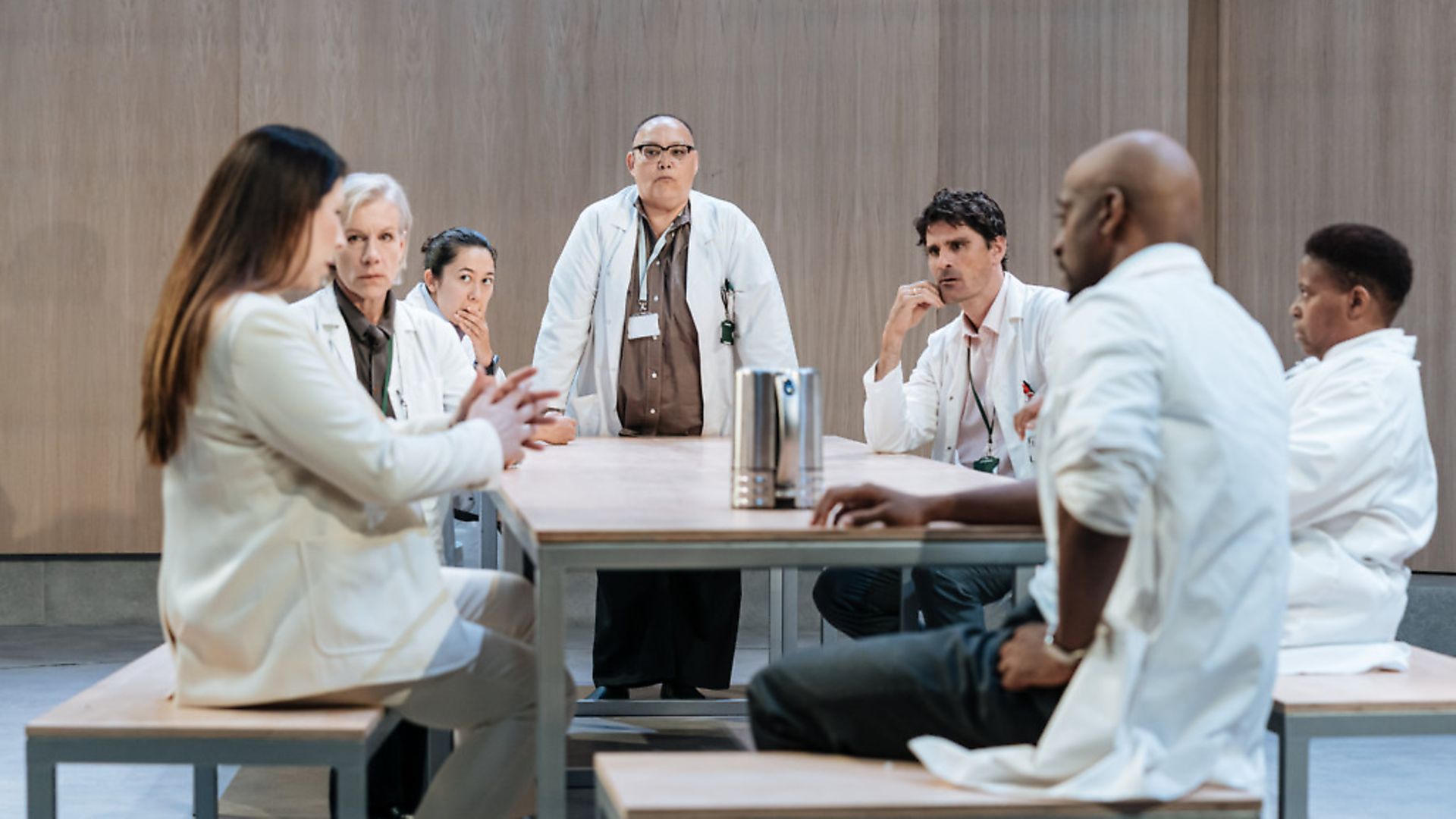
TIM WALKER reviews The Doctor at London’s Almeida Theatre
Social media has helped to make identity politics an inescapable part of modern life. This has been as much of a curse as a blessing since it means we’re now required to be in an almost perpetual state of outrage over this, that and the other. Worse still, politicians like Trump, Johnson and Farage have been afforded much greater prominence than they deserve because it’s now considered necessary for us all to howl with indignation whenever they say anything at all that’s calculated to offend.
In The Doctor, black actors often play white characters and some men play women and vice-versa. There’s nothing new, of course, about colour-blind and even gender-fluid casting, but this is done deliberately to make us question our prejudices and ask if they’re really such a good idea, even when impeccably liberal. Maybe especially when impeccably liberal.
The work is loosely based on Arthur Schnitzler’s 1912 play Professor Bernhardi, which took such a long, hard look at anti-Semitism and Austrian-Jewish identity in Vienna that it was banned in Austria until after the collapse of the Austro-Hungarian empire. Robert Icke adapts as well as directs and his setting is a reputable private hospital in a contemporary metropolis where an unseen teenager who has attempted to perform an abortion upon herself is dying of sepsis. A Catholic priest (played by Paul Higgins) attempts to visit her and Juliet Stevenson as the physician in charge turns him away on the grounds that he might get her into an agitated state.
Stevenson’s doctor happens to be Jewish by descent, if not faith, and, when the patient subsequently dies, she finds herself at the centre of a social media storm because she’s perceived to have shown contempt towards a man of God. Soon it’s about Catholics versus Jews, religion versus science, she’s trending on Twitter, making the front pages, getting to be kicked around as a political football and appearing on a Moral Maze-type show, where pseudo-intellectuals, playing to their own audiences, gleefully take shots at her.
Stevenson, like Helen Mirren, is superb at portraying steely women professionals totally fixated with their jobs and I found it hard not to feel her outrage at what she was having to go through, but, then, of course, that betrays my own prejudice. I don’t happen to believe in God. I’ve no doubt that those who do could well have taken the side of the priest every bit as robustly.
Played out on Hildegard Bechtler’s stark, white, minimalist set – with suitably unforgiving lighting by Natasha Chivers – this is one of the most intelligent, thought-provoking and all-too-believeable plays I’ve seen in years and it marks a wonderful way for Icke to bow out as an associate director of this theatre. I wonder, however, if it is simply too intellectual to make a West End transfer. I hope in that prejudice at least I will soon be confounded.









